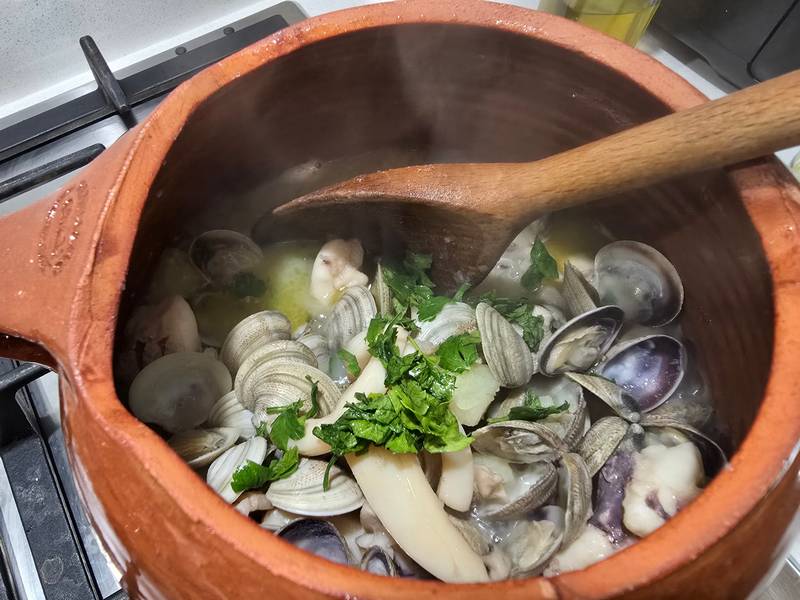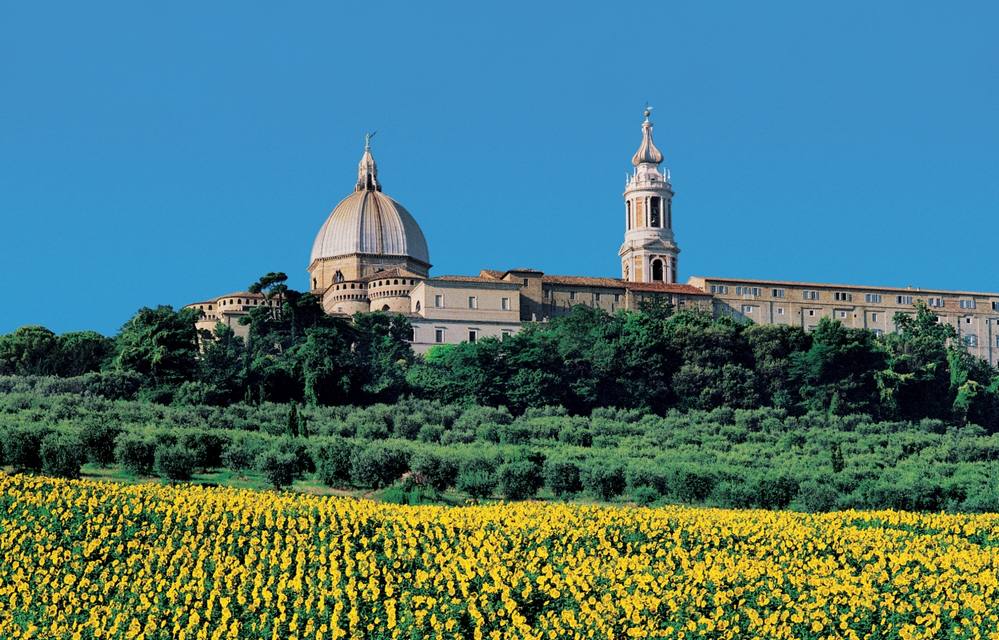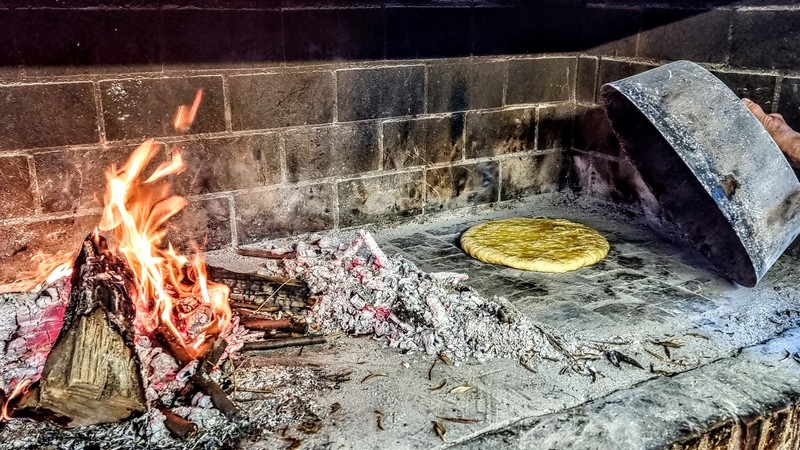Abruzzo, with its majestic mountains and green hills, is a land rich in gastronomic traditions that reflect the authentic soul of rural Italy.
Among the culinary treasures of this region, Abruzzese ricotta stands out, a dairy product that tells stories of ancient crafts, genuine flavors, and a culture deeply tied to the territory.
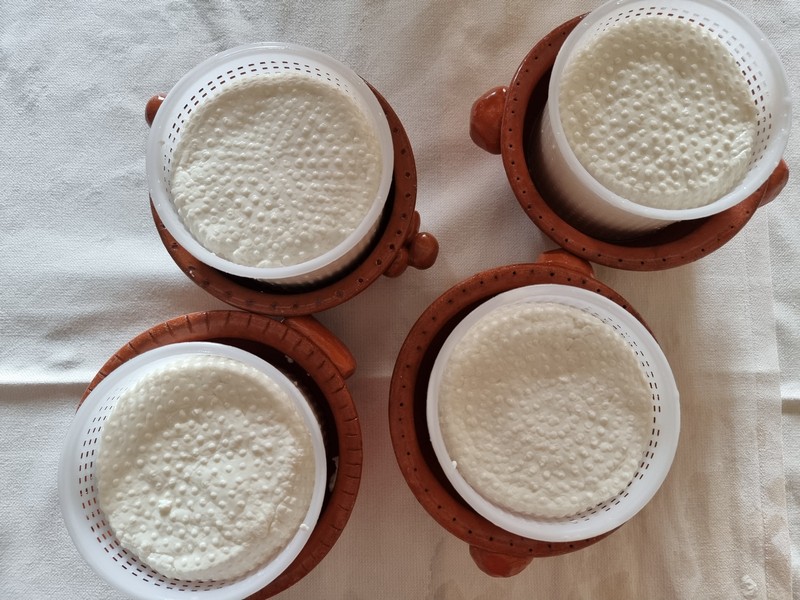
Ricotta, whose name derives from the Latin “recocta,” meaning “cooked twice“, is a dairy product obtained from the whey of sheep, cow, or goat milk.
In Abruzzo, the production of ricotta has ancient roots, passed down from generation to generation by shepherds who have always inhabited these lands.
The milk, after being used to make cheese, is reheated to separate the remaining proteins, creating this creamy and delicate product.
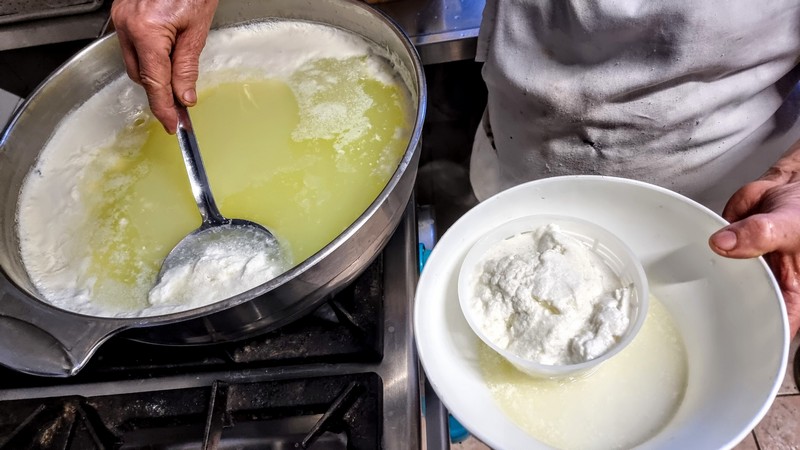
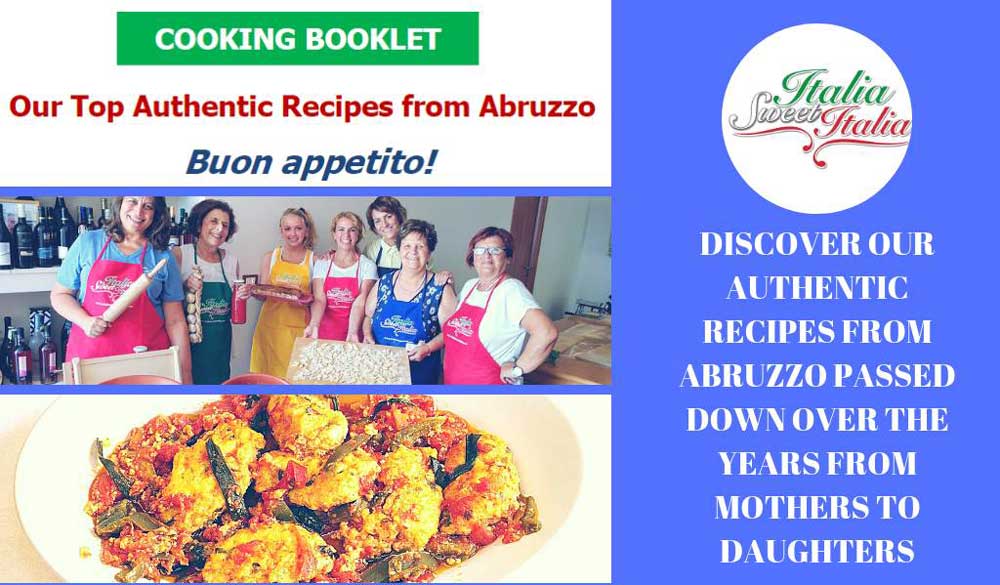
The production of Abruzzese ricotta is a process that requires patience and attention.
The whey is heated to about 90°C, a temperature that allows the proteins to coagulate.
During this process, white flakes emerge, which are carefully collected and placed to drain in special containers.
The quality of the ricotta depends on the freshness of the milk and the skill of the cheesemaker, who knows exactly when to stop heating to achieve the perfect consistency.
In Abruzzo, ricotta is produced in different varieties, each with its own peculiarities:
- Fresh Ricotta: The most well-known and consumed version, characterized by a soft texture and delicate flavor. It is ideal to be eaten alone, with a drizzle of honey, or used in sweet and savory preparations.
- Aged Ricotta (Ricotta salata): It is left to dry and mature for a longer period, developing a more intense flavor and a firmer texture. It is perfect grated over pasta dishes or as an ingredient in traditional recipes.
- Smoked Ricotta: A less common but highly appreciated variant, where the ricotta is subjected to a smoking process that gives it a unique aroma and a smoky flavor that enriches any dish.
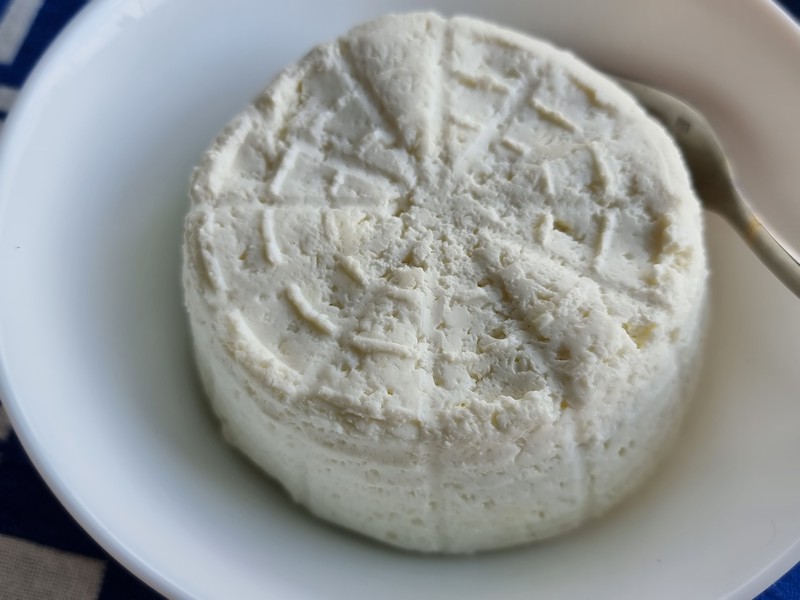
Abruzzese ricotta is a versatile ingredient that lends itself to numerous culinary preparations.
Among the most iconic dishes are ricotta ravioli, fresh pasta filled with ricotta and spinach, seasoned with melted butter and sage or with a simple tomato sauce.
Equally noteworthy are the sweet ricotta ravioli from Vasto, which my mother often prepares during festive occasions, particularly at Carnival.
Another delight is the fiadone, a traditional Easter cake.
One of the most fascinating experiences we offer our travelers during tours in Abruzzo is the opportunity to actively participate in the production of ricotta.
Our guests have the chance to visit a local farm and, under the expert guidance of cheesemakers, witness and take part in the ricotta-making process.
This hands-on involvement allows them to fully appreciate the care and dedication needed to create a high-quality product.
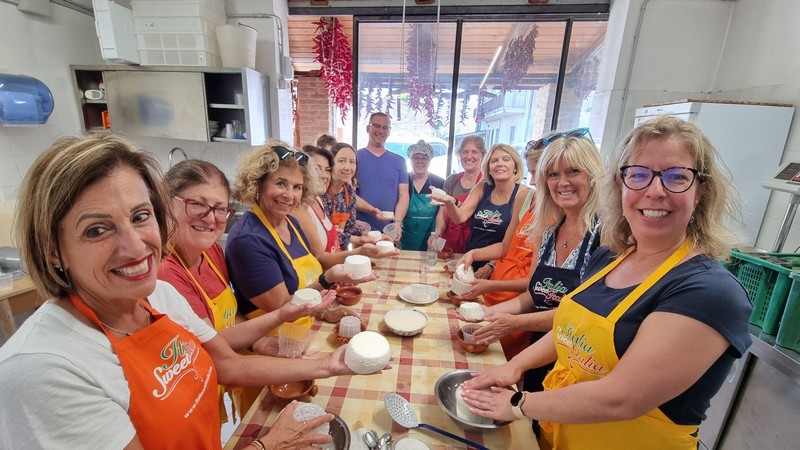
Abruzzese ricotta is not just food; it is a symbol of a gastronomic culture that values authentic flavors and tradition.
Every bite of ricotta carries the taste of Abruzzo’s mountains and hills, telling a story of dedication and passion for quality.
If you find yourself in Abruzzo, do not miss the chance to taste fresh ricotta directly from local producers.
And if you are a lover of Italian cuisine, try experimenting with Abruzzese ricotta in your recipes to add a touch of authenticity and flavor to your dishes.
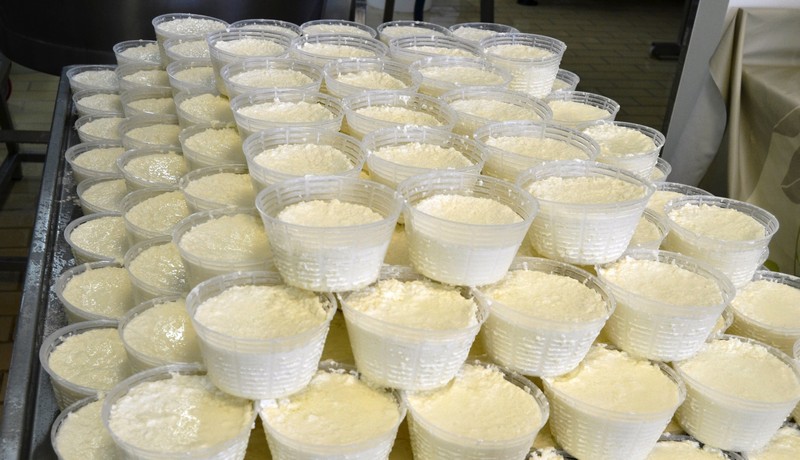
Ready to travel to Abruzzo, Italy?
Get in touch today for more information about our tour. We are ready to help you choose the best options for your dream vacation!
And if you’re not quite ready to make an inquiry, sign up for our free email course to learn everything you need to know about planning a tour of Abruzzo.

